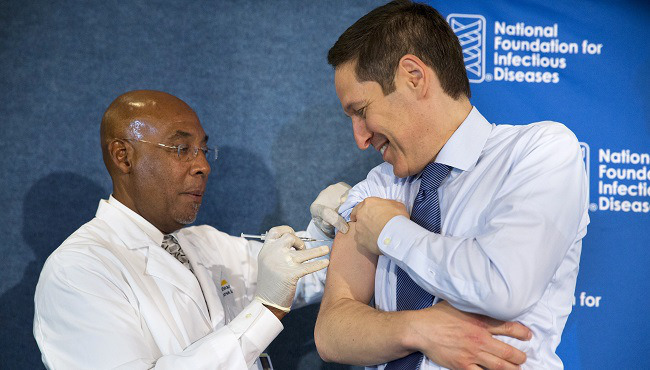

If you are living with a long-term health condition like asthma, COPD, diabetes or heart disease, you take steps every day to stay healthy by taking your medicine, carrying an inhaler, eating right, or monitoring your blood sugar and cholesterol. But did you know that there is something else you can do just once a year to keep yourself healthy? You can get a flu shot.
People living with asthma, COPD, diabetes or heart disease have a higher risk of complications from flu. In past flu seasons, up to 80 percent of adults hospitalized from flu complications had a long-term health condition, as did about 50 percent of hospitalized children. The flu can make these health conditions worse, even if they are under control. People living with these conditions may also have weakened immune systems that make it harder for their bodies to fight flu. This is why it is so important that people with long-term health conditions get their flu shot every year.
Asthma is the most common medical condition among children hospitalized with the flu. Lung diseases like asthma and COPD cause your airways to swell and become blocked with mucus, which makes it hard to breathe. Flu can also increase the swelling of your airways and lungs, causing severe asthma attacks and symptoms that can lead to hospitalization. Heart disease was the most common health condition among Minnesota adults hospitalized with flu in 2012-13 flu season. If you have heart disease, flu can increase your risk of having another heart attack. Flu can raise blood glucose to dangerously high levels in people with type 1 or type 2 diabetes. Diabetics also have a higher risk of developing pneumonia by itself or after getting the flu so they also may need a pneumococcal vaccine.
Do you live with a family member who has a long-term health condition? It is especially important to stay up-to-date on recommended vaccinations, including your flu shot. Getting a flu shot can help prevent the spread of flu to people at higher risk. Get vaccinated to protect your family members.
The flu shot is safe to get, even if you are taking prescription medications. Adults can get the flu shot at doctors’ offices, pharmacies, workplaces, health clinics, and health departments. You may also need other vaccines based on other factors so talk to your doctor. Most health insurance plans cover the cost of recommended vaccines—a call to your insurance provider can give you the details. If you do not have health insurance or cannot afford vaccines, find an Uninsured and Underinsured Adult Vaccine (UUAV) clinic near you at: www.health.state.mn.us/divs/idepc/immunize/adultvax/clinicsearch.html.






